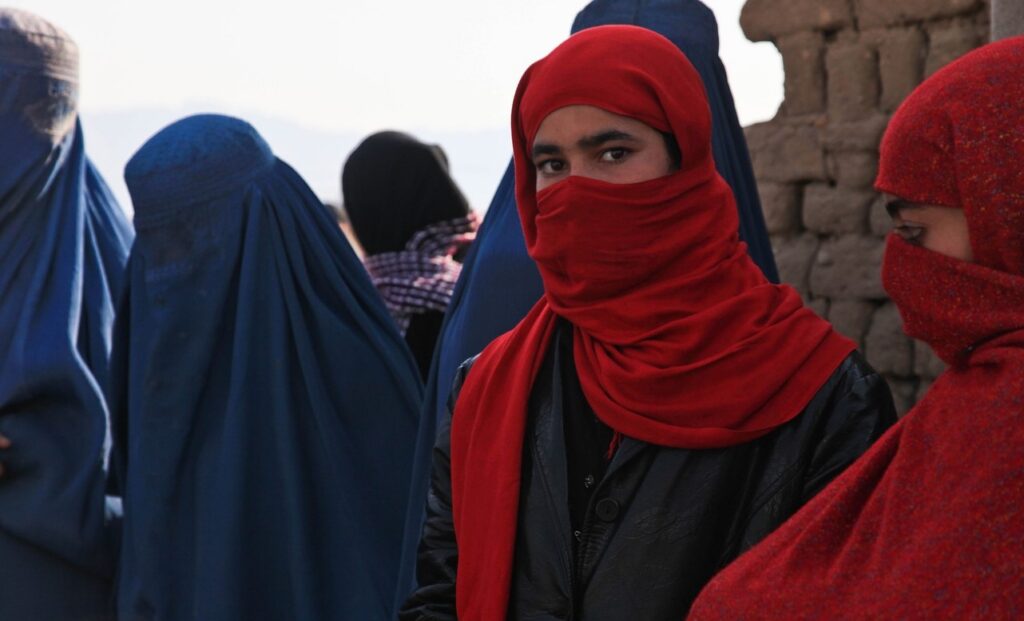Hibatullah Akhundzada, Taliban’s supreme leader, says women’s lives in Afghanistan have been “bettered” by his rule as the United Nations sounds alarms about women’s rights in the country. The return of the Taliban to power in Afghanistan has sent shockwaves across the globe, raising concerns about the fate of women under their rule. Historically known for their oppressive treatment of women during their previous regime, the Taliban’s return brings with it a resurgence of gender-based restrictions, eroding the progress made in women’s rights over the past two decades.
In a message ahead of the Eid al-Adha holiday, Akhundzada said women’s “Shariah rights have been protected” and that steps have been taken to protect them from forced marriages and other oppressions.
“Necessary steps have been taken for the betterment of women as half of society in order to provide them with a comfortable and prosperous life according to the Islamic Shariah,” he said. “The status of women as a free and dignified human being has been restored and all institutions have been obliged to help women in securing marriage, inheritance and other rights.”
But the United Nations mission in Afghanistan said earlier this year that the new Taliban leaders have “demonstrated an almost singular focus on imposing rules that leave most women and girls effectively trapped in their homes” and that Afghanistan “remains the most repressive country in the world regarding women’s rights.”
“Over the past 22 months, every aspect of women’s and girls’ lives has been restricted. They are discriminated against in every way,” Deputy UN High Commissioner for Human Rights Nada Al-Ashif said this month.
Since assuming power following the U.S. withdrawal in 2021, the Taliban has imposed severe restrictions on the rights and freedoms of women and girls. These include prohibiting them from pursuing education beyond the sixth grade, mandating the wearing of full-body coverings in public, and largely curtailing their ability to travel outside their homes. These measures represent a significant regression in terms of gender equality and women’s empowerment in the areas under Taliban control.
The U.N. mission told the Taliban rulers last week that international recognition as the country’s legitimate government is “nearly impossible” unless they lift severe restrictions on women and girls’ education and employment.
But why would anyone ever recognize the Taliban government as legitimate? It is an oppressive regime that disregards human rights, women’s rights, and many other freedoms of choice and liberty. The Taliban places women at the whim of men and forbids women from participating in public and social activities. Severe punishments including the death penalty are readily meted out by the Taliban government, with no proper judicial rights afforded to the accused.
One of the most alarming consequences of the Taliban’s rule is the denial of education to women and girls. Their decrees prohibit girls from attending school past the age of twelve, limiting their intellectual growth and denying them opportunities for personal development. This regressive stance severely hampers the chances of Afghan women in achieving economic independence and contributing to their society.
The Taliban mandates strict dress codes for women, compelling them to wear head-to-toe coverings such as burqas or niqabs in public. This enforced attire not only restricts women’s freedom of expression but also perpetuates a culture of control and submission. By reducing women to mere objects hidden from public view, the Taliban undermines their autonomy and denies them the basic right to personal choice.
Under Taliban rule, women face severe limitations on their freedom of movement. They are largely confined to their homes, restricted from traveling alone or even leaving their residences without a male escort. This isolation robs them of opportunities for employment, education, healthcare, and social engagement. It perpetuates a cycle of dependency, hindering the progress of Afghan society as a whole.
The Taliban’s oppressive policies have also led to the dismantling of women’s healthcare services in many areas. Female healthcare professionals and organizations providing reproductive health services have been targeted, leaving countless women without access to vital medical care. The consequences are dire, with maternal mortality rates expected to rise and preventable health issues going untreated.
The Taliban’s treatment of women goes beyond restricting their freedoms. Reports of systematic suppression, violence, and forced marriages have emerged, showcasing the dire situation faced by Afghan women. Instances of physical abuse, public floggings, and even executions have been documented, creating an atmosphere of fear and intimidation that permeates every aspect of women’s lives.
The Taliban’s return to power has sparked deep concerns about the rights and freedoms of Afghan women. Their oppressive policies, ranging from educational restrictions to the denial of basic human rights, represent a significant setback for gender equality. The international community must stand united in condemning these actions and work towards supporting Afghan women in reclaiming their rights and achieving gender justice. Empowering women and promoting their inclusion in all aspects of society is not just a matter of human rights but also a crucial step towards building a more peaceful, prosperous, and equitable Afghanistan.
Image: Pixabay
Become a Patron!
Or support us at SubscribeStar
Donate cryptocurrency HERE
Subscribe to Activist Post for truth, peace, and freedom news. Follow us on SoMee, Telegram, HIVE, Flote, Minds, MeWe, Twitter, Gab, What Really Happened and GETTR.
Provide, Protect and Profit from what’s coming! Get a free issue of Counter Markets today.


Be the first to comment on "The Devastating Lives of Afghani Women Under Taliban Rule"